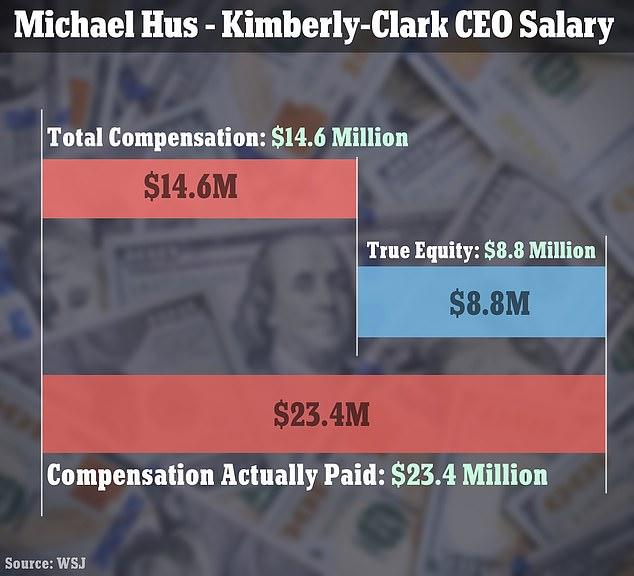Houston’s Executive Pay Gap: A Deep Dive into CEO and Employee Salary Disparities
Houston’s CEO Salaries Far Exceed Median Worker Earnings
Within Houston’s corporate sector, a pronounced income gap exists between top executives and their average employees. Recent findings indicate that some of the city’s highest-paid CEOs receive compensation packages surpassing 200 times the median employee salary. This widening divide has intensified discussions around income inequality, corporate responsibility, and the economic fabric of Houston’s business community.
Key statistics illustrating this disparity include:
- CEO Annual Pay: Between $15 million and $35 million
- Median Employee Income: Ranges from $65,000 to $120,000
- CEO-to-Worker Pay Ratio: Spanning from 180:1 up to 255:1
| Company | CEO Compensation | Median Employee Salary | Pay Ratio |
|---|---|---|---|
| PowerGen Energy | $28M | $110K | 255:1 |
| MedTech Solutions | $22M | $90K | 244:1 |
| Industrial Works | $18M | $78K | 231:1 |
| Finance Partners | $15M | $65K | 230:1 |
This significant wage gap has ignited calls from labor groups and civic leaders for companies to reevaluate their pay frameworks. Advocates emphasize the need for transparent and fair compensation models that not only reward profitability but also acknowledge employee contributions and Houston’s living costs.
How Executive Pay Disparities Affect Employee Engagement and Company Culture
The vast difference in pay between CEOs and their employees can have profound effects on workplace morale and organizational culture. When executives earn over 200 times more than the median worker, it often leads to feelings of alienation and mistrust among staff. Employees may perceive their efforts as undervalued, which can diminish motivation and productivity. Additionally, such disparities risk creating divisions within the workforce, where frontline employees feel disconnected from leadership’s priorities. This fragmentation undermines efforts to build a cohesive, mission-driven company culture essential for sustainable success.
On the other hand, organizations that actively address pay imbalances and promote equitable compensation tend to foster stronger employee loyalty and trust. Leaders who tie their remuneration to company performance and employee well-being demonstrate a commitment to shared prosperity. Benefits of narrowing pay gaps include:
- Improved employee satisfaction and morale
- Reduced turnover and enhanced retention
- Better cross-departmental collaboration
- Elevated corporate reputation among clients and investors
| Aspect | Effect of Large Pay Gap | Effect of Pay Equity |
|---|---|---|
| Employee Motivation | Declines | Increases |
| Workforce Unity | Divides | Strengthens |
| Company Image | Damaged | Enhanced |
Calls for Transparency and Fair Pay Practices in Houston’s Corporate Sector
Industry analysts have spotlighted the growing wage chasm in Houston’s top firms, where CEO pay often dwarfs that of the average employee by over 200 times. Experts warn that such disparities exacerbate economic inequality and obscure the true value of the workforce’s productivity. To combat this, there is a strong push for companies to disclose detailed compensation data, fostering greater accountability and encouraging equitable pay policies.
Analysts recommend the following measures:
- Mandatory disclosure of CEO-to-worker pay ratios to shareholders and the public
- Development of compensation frameworks that ensure fair wages across all employee levels
- Regular internal reviews to identify and correct pay imbalances
- Increased involvement of stakeholders in shaping pay policies
| Company | CEO Salary (Millions) | Median Employee Salary (Thousands) | Pay Ratio |
|---|---|---|---|
| PowerGen Energy | $15.8 | $75 | 211:1 |
| Houston Tech | $22.4 | $110 | 204:1 |
| Global Oil Corp | $18.5 | $85 | 218:1 |
Governance Experts Propose Solutions to Bridge the Pay Divide
Corporate governance authorities and business leaders advocate for targeted reforms to mitigate the stark pay disparities revealed in Houston’s executive compensation reports. Proposed initiatives include enhanced transparency requirements, public disclosure of pay ratios, and aligning executive incentives with long-term company health rather than short-term profits. Emphasizing board accountability is crucial to ensuring compensation policies fairly represent the contributions of all employees.
Recommended strategies to foster pay equity include:
- Clearer guidelines on pay ratio disclosures to monitor and report compensation gaps regularly
- Performance-linked bonuses that reward sustainable growth and employee welfare
- Increased worker representation on compensation committees to incorporate employee perspectives
- Comprehensive pay equity audits to uncover and address hidden wage disparities
| Strategy | Anticipated Outcome |
|---|---|
| Pay Ratio Transparency | Boosts accountability and builds shareholder confidence |
| Performance-Based Incentives | Aligns executive goals with employee and company success |
| Worker Inclusion | Promotes fairness and collaborative decision-making |
| Pay Equity Audits | Identifies and eliminates wage inequities |
Conclusion: Addressing Houston’s Executive Pay Imbalance for a Fairer Future
The pronounced salary gap between Houston’s CEOs and their median employees raises urgent concerns about wage fairness and corporate governance in the city’s business ecosystem. As executive compensation continues to outpace worker earnings by hundreds of times, the dialogue around equitable pay and economic justice remains vital. Moving forward, stakeholders, policymakers, and corporate leaders must carefully evaluate these disparities to foster a more inclusive and balanced economic environment in Houston.




